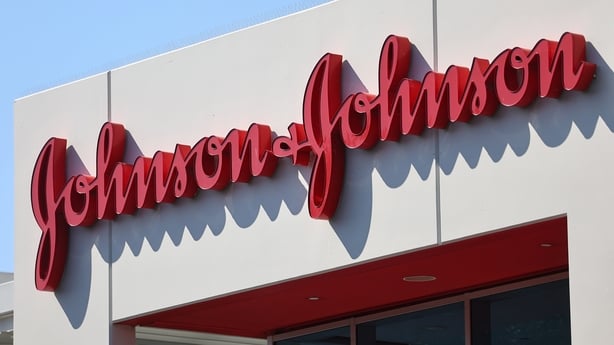Johnson & Johnson said today it had reached a tentative settlement to resolve probes by US states into whether it misled consumers about the safety of its talc products, which thousands of lawsuits claim can cause cancer.
The deal includes 42 states and Washington, DC. The company tentatively agreed to pay about $700m to settle the states' claims, according to the Wall Street Journal.
"Consistent with the plan we outlined last year, the company continues to pursue several paths to achieve a comprehensive and final resolution of the talc litigation," Erik Haas, J&J's worldwide vice president of litigation, said in a statement.
The settlement does not extend to private plaintiffs' cases against the company, some of which are expected to go to trial later this year.
J&J has maintained that its now-discontinued talc products are safe and do not cause cancer. It previously set aside $400m to resolve state claims.
The company still faces more than 50,000 lawsuits over talc, most by women with ovarian cancer. A minority of the cases involve people with mesothelioma, a type of cancer linked to asbestos.
It recently settled some of the mesothelioma cases for an undisclosed amount but has maintained that its talc did not contain asbestos.
The company has twice tried to resolve the cases by placing its talc liabilities into bankruptcy, but both attempts were rebuffed by courts.
In the latest failed bankruptcy attempt, the company had proposed to pay $8.9 billion to talc claimants. J&J said last year that it was planning a third bankruptcy filing.
The settlement with the states could make that easier, as some states had previously argued that they, unlike private plaintiffs, can continue pursuing claims while a bankruptcy is pending. Courts have not resolved that issue.
Trials in the talc cases have had a mixed record, with major plaintiff wins including a $2.1 billion judgment in 2020 awarded to 22 women with ovarian cancer.
A New Jersey appeals court in October threw out a $223.8m verdict against the company, finding the testimony of the plaintiffs' expert witnesses unsound.
The company stopped selling talc-based baby powder in favour of cornstarch-based products, citing an increase in lawsuits and "misinformation" about the talc product's safety.
Earlier Johnson & Johnson reported quarterly results just above Wall Street expectations, helped by strong sales of its blockbuster psoriasis drug Stelara, which is expected to face fresh US competition from biosimilar versions next year.
A key patent for Stelara expired in the US last year, but J&J struck deals with competitors to delay the launches of their biosimilars until 2025.
Amgen will be the first to launch its near-copy, Wezlana, next year.

Analysts have said the delay in biosimilar launches would make Stelara a larger contributor to J&J's 2024 and 2025 sales than previously anticipated.
Sales of the drug are expected to be $10.54 billion in 2024, down 3% from the $10.86 billion in 2023.
Fourth-quarter Stelara sales came in at $2.75 billion, topping analysts' estimates of $2.63 billion.
J&J said it expects entry of Stelara biosimilars in Europe toward the middle of 2024.
The fourth-quarter results did not reveal any "major surprises," JP Morgan analyst Chris Schott said, adding that the company's pharmaceutical segment was well positioned to generate mid-single-digit growth despite pending Stelara competition.
J&J's medical device business, which has benefited from a resurgence in demand for joint replacement and other surgeries delayed during the Covid-19 pandemic, generated revenue of $7.67 billion, topping estimates of $7.49 billion, according to LSEG data.
J&J's chief financial officer Joseph Wolk in an interview said not only had demand for medical devices rebounded since the end of the pandemic, but that it had risen further in December.
J&J recorded an $84m charge in the quarter related to a restructuring programme for its orthopedics business. As part of that project, J&J plans to exit certain markets and stop selling some orthopedic products.
J&J's cancer treatment Carvykti, which had sales of $159m for the quarter, belongs to a class known as CAR-T therapies that have come under scrutiny over a safety issue.
The company said it was working with the US Food and Drug Administration to update its prescribing information after the agency sent a notice requiring CAR-T therapy makers to add a serious safety warning over a potential link to secondary malignancies.
Wolk said the drugmaker stills expects Carvykti to reach peak sales of at least $5 billion, despite that safety warning.
The healthcare conglomerate posted a fourth-quarter profit of $2.29 per share that topped analysts' expectations by one cent, according to LSEG data.
Quarterly revenue of $21.40 billion narrowly beat estimates of $21.01 billion.
J&J also reaffirmed its adjusted operating profit forecast of $10.55 to $10.75 per share for 2024.

